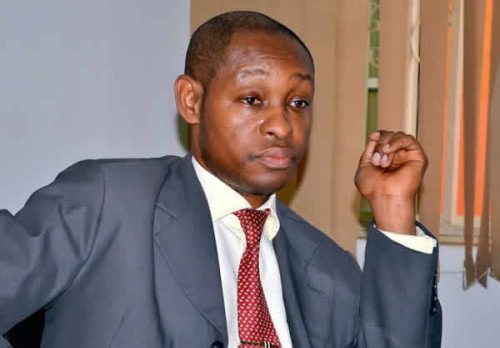Educational Issues
Resolving the ASUU Strike -By Eze Onyekpere
The funding of tertiary education is not contingent on any particular philosophy of governance in terms of absolute state funding or imposing school and user fees on students. The spirit of our age and the reality of our time demand that we explore all possible funding opportunities including endowments and investments by universities, contributions by alumni association members, etc.

The strike of the Academic Staff Union of Universities is in its sixth month. Unfortunately, the resolution of the issues in contention seems for now impossible considering the hard stance of the contending parties. This discourse reviews the strike and its impact on the right to education, national development and the desire for economic growth in Nigeria and ends with recommendations on the way forward.
It is imperative to start by acknowledging that education is an empowering right. It is a human right in itself and the means and vehicle for the realisation of other human rights. It is a vehicle for the liberation of the poor, vulnerable and marginalised as well as enabling the full participation of individuals and communities in economic, political and social life. Education facilitates the acquisition of knowledge, life skills, technical skills and problem-solving skills for the development of society. It is the fulcrum upon which value addition and technological breakthroughs revolve. In the modern societal context of democratisation, education is important for democratic consolidation, enabling individuals to contribute as voters through making the right choices as free human beings, not being deceived and entrenched in the bigotry of ethnicity, religion, place of birth, sex, etc. Education is also needed to hold leadership to account for their stewardship. Democracy presupposes rational human beings who understand issues and are able to exercise their franchise in their enlightened interest. Education positions the young to understand their society so as to take over the levers of leadership.
It is against this critical background that education is always expected to be a priority in public budgets in consideration of the plan, policy and budget continuum. Education plans and policies show the pathways, the agreed societal goals and directions for the improvement of education while the budget provides the resources to drive the achievement of the overall goals of plans and policies. This is especially imperative in the minimum core content of the right to education. This minimum core content drives the minimum core state obligation in education. This minimum obligation has been articulated in the bundle identified as the right to basic education. This is the basis of Nigeria’s federal legislation that pronounces basic education as compulsory, free and universal. With the high number of out-of-school children stated at 13 million, it is clear that the goals of the universal basic education scheme are far from being realised. Furthermore, everyone is entitled to the satisfaction of their basic learning needs which enables them to full and realistic participation in economic and social life. Going by the quality and functionality of basic education delivered in our public schools, it is doubtful that basic education meets this standard.
The ASUU strike revolves to a great extent on the issue of funding of public universities. Federal and state governments contend that there is the challenge of paucity of resources as the available resources are definitely not sufficient to attend to national challenges in all the sectors including health, housing power, security, other infrastructure, etc. The authorities are even contending that to meet ASUU’s demands, they may need to borrow. This is true. This is coming at a time when Nigeria is broke and insolvent and would have been pencilled down for liquidation if it were a private sector entity. This raises a poser: are ASUU’s demands unreasonable or outrageous? Obviously, their demands are extremely reasonable. But there is a deeper issue which is not generally brought to the fore and which underlies ASUU’s insistence on receiving their dues even if the heavens may fall. It is the fact that government only claims to be broke when it is the time to fund the relatively low wages of university teachers.
University teachers live in the same economy and are living witnesses to the humungous salaries, allowances and perks of office of the president, vice president, governors, deputy governors, legislators, ministers, commissioners, special assistants and all manner of charlatans masquerading as political office holders. These “entitlements” of political office holders are not only insensitive but nauseating and cannot meet the most elementary test of value for money considering that this is the political class that has run Nigeria aground in all facets of national life—economy, unity, insecurity, etc. The political leadership have failed, refused and neglected to do their jobs and have driven Nigeria into insolvency, a state that needs to borrow to service debts, the deepest insecurity situation (outside of the civil war years) since independence, poorest health and education indicators, etc. But they do not blink an eyelid in their continued feasting on public resources. Paucity of resources is only raised when teachers demand a living wage.
Beyond their official remuneration, the political office holders have presided over the unmitigated looting of public resources. If the system had been working, not less than sixty per cent of current office holders will be in jail while others will be awaiting their turn through judicial trials which will finally see them wearing the prison uniform.
The other major issue is that the authorities over the years have been obtaining the services of tertiary teachers under false pretences contrary to our criminal laws. Each time the government signs an agreement with ASUU, they make up their mind from the outset not to fulfil their part of the bargain while ASUU on the strength of the agreements go back to the classroom. Years after, the issues remain unresolved. Who needs this type of governance which has become a naked display of dishonesty, refusal to honour agreements and lying to cheat persons who build wealth for society?
It will be recalled that some prominent Nigerians had in the past called for a complete overhaul of the educational system including shutting it down for some time to make sense out of a sector that is expected to deliver optimal results with suboptimal resources and funding. The strike is an evident weakness and threat which provides opportunities for a review and fresh start. It is not all negative if and only if the gladiators see the positive sides of the debacle. It provides the opportunity either by the present government or the incoming one to harmonise the entire remuneration structure across the public service – no sector should be left behind.
There is an opportunity to review the funding of education, especially at the tertiary level. It even requires getting more education out of the present poor funding through greater efficiency and value for money approach. A situation as shown in our yearly budgets where universities vote funds for the purchase of SUVs and other ostentatious items fritters away available resources.
Various reports of intra-university crises show the usual public service contract inflation and procurement abuses. We need to ask: What is the role of ASUU in overall education budgeting or the role of the local chapters in determining funding priorities of each university? The Auditor General for the Federation keeps reporting on monies due to the public treasury but mismanaged by university administrations in an era where public funding of universities is grossly inadequate.
The funding of tertiary education is not contingent on any particular philosophy of governance in terms of absolute state funding or imposing school and user fees on students. The spirit of our age and the reality of our time demand that we explore all possible funding opportunities including endowments and investments by universities, contributions by alumni association members, etc.
















